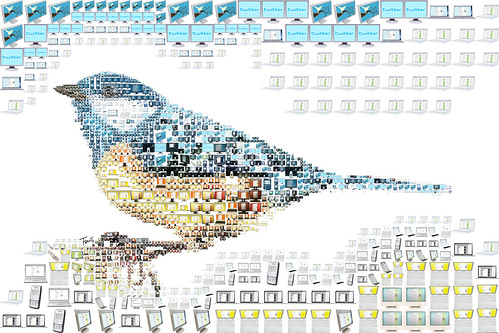From Vogelstein writing in Wired magazine, August 2009:
“Google is big. Very big. Its millions of servers process about 1 petabyte of user-generated data every [60 minutes]...bigness is the very point of Google...its competitive advantage-is its ability to find meaning in massive sets of data. The larger the data sets, the more potential meaning can be derived...”By the by, one petabyte (PiB) is equal to 1,125,899,906,842,624 bytes (B), and each standard byte contains eight bits (ones and/or zeros). Impressive, isn’t it?

Eric Schmidt, one of the founders of Google, repeatedly reminds his employees that Microsoft could crush Google at any moment. To wit:
“...because Microsoft is a follower, there is a concern that it could use its Windows monopoly to restrict choices”
Here's a couple from Jarvis in his What Would Google Do? book:
Note that back then, the Twitter service was only 600 days old – this is a reflection of the significantly swift adoption rate that y'all have for web services that “just work” connect you with your friends and family.“When China’s Sichuan Province suffered its horrendous earthquake in May 2008, people who felt it firsthand shared their experience via Twitter...people in the quake zone would use Twitter to update friends...If I were going through a quake, I’d want to tell family and friends that I was safe, wouldn’t you?”
What Would Google Do?:
We're standing on the shoulders of Giants, right?

We're enjoying the multitudes of free web applications that are being developed nowadays to "just work," with the software vendor getting out of the way.
How do some of the newer, smaller, web vendors that "give away" free online services pay their employees, though?
The Web 2.0 conundrum...
Any brilliant ideas about this?
I keep hoping that this Golden (Google?) Age of developing free "just work" web applications lasts for a while.
If not, change will be brutally and significantly swift, too.
Talk about these ideas soon, eh?







